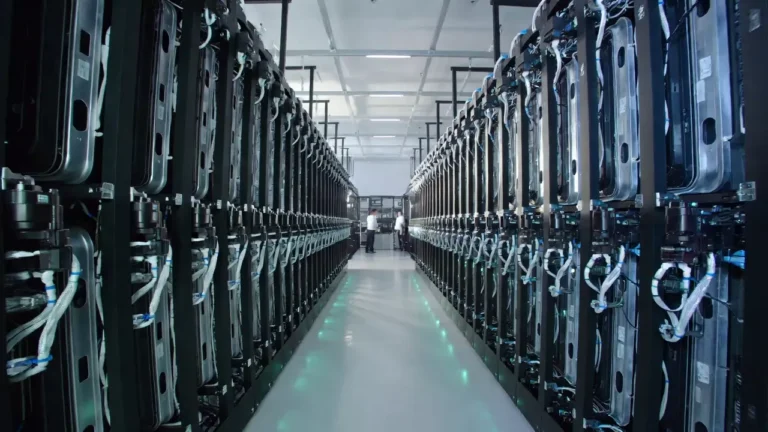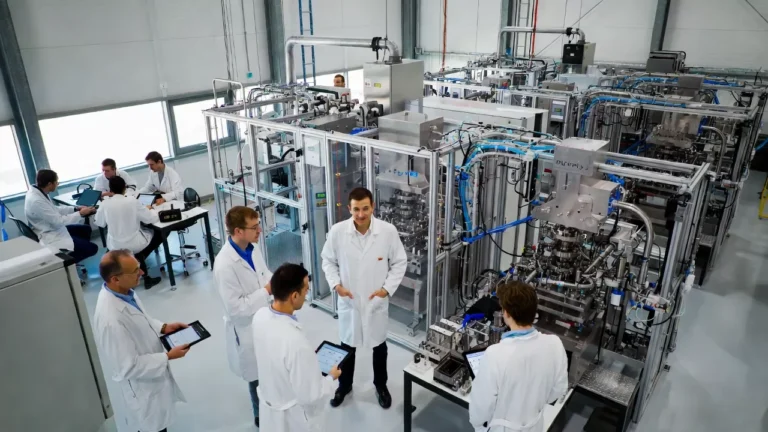
Comprehensive Training on GLP Compliance Documentation and Recordkeeping Now Available
ResearchAndMarkets.com has recently introduced a new online seminar titled “GLP Laboratory Compliance Documentation and Recordkeeping” designed to equip laboratory professionals with the essential knowledge and skills needed to maintain rigorous compliance with Good Laboratory Practice (GLP) standards. This training course offers an in-depth exploration of effective documentation and recordkeeping methods critical for ensuring compliance during regulatory audits and fostering overall operational excellence in laboratories.
Why Focus on GLP Documentation and Recordkeeping?
Good Laboratory Practice (GLP) serves as a cornerstone in the quality assurance framework for laboratories performing non-clinical safety studies, including chemical, pharmaceutical, and biological testing. Central to GLP compliance is the maintenance of meticulous and transparent documentation. Without robust records, laboratories risk regulatory non-compliance, which can lead to failed audits, financial penalties, or rejection of study data.
This seminar dives into the complex, often overlooked areas of documentation that are prone to errors. From data entry and validation, to archiving and training records, participants will uncover the nuances and common pitfalls that can undermine a laboratory’s compliance status. The training is invaluable for labs initiating GLP practices, as well as those seeking to maintain or renew certifications such as ISO 17025.
Who Should Attend?
This course is tailored for a broad spectrum of laboratory professionals involved in quality management and regulatory compliance, including:
- Quality Assurance (QA) Departments
- Quality Control (QC) Departments
- Research and Development (R&D) Teams
- Laboratory Managers and Supervisors
- Quality Officers
- Scientists
- Internal Auditors
- Regulatory Compliance Professionals
By attending, participants will gain a thorough understanding of the documentation processes required to ensure their labs can consistently meet regulatory expectations.
Seminar Objectives: What You Will Learn
The course aims to provide participants with practical skills and conceptual knowledge to improve their lab’s compliance framework. Key learning outcomes include:
- Understanding Essential Documentation: Gain clarity on the various document types critical for GLP compliance.
- Mastering Logbook Practices: Learn how to make compliant logbook entries and avoid common mistakes.
- Optimizing Documentation Systems: Appreciate the purpose of different logbooks such as those for chemicals, instruments, calibrations, maintenance, repairs, and personnel training.
- Enhancing Recordkeeping and Archiving: Develop strategies for maintaining accurate, retrievable records aligned with regulatory requirements.
Course Content Overview
The training spans two full days of interactive online sessions, structured to progressively build participants’ knowledge of GLP documentation essentials.
Day 1: Foundations of Documentation and Recordkeeping
Lecture 1: Recordkeeping and Archiving Fundamentals
The seminar opens with an overview addressing the foundational questions of who, what, when, where, why, and how recordkeeping and archiving should be performed. Key regulatory references include FDA 21 CFR Part 58.190, which governs record retention policies under GLP.
Lecture 2: Roles and Responsibilities
Understanding the human element is crucial. This session breaks down the roles and responsibilities of laboratory personnel as outlined in ISO 17025:2017 Clause 8.4.1, focusing on the control and management of records.
Lecture 3: What Must Be Recorded and Why
Here, participants learn about the specific data points and documents that must be captured and retained. The lecture emphasizes the significance of documentation for both operational integrity and regulatory compliance, citing FDA 21 CFR Part 58.195 on record retention requirements.
Lecture 4: Recordkeeping Locations and Methods
This lecture addresses the practicalities of recordkeeping — where documents should be stored, differences between onsite and offsite archiving, and how to establish an efficient logging system that ensures document security and accessibility.
Day 2: Operational Documentation and Quality Control
Lecture 5: Laboratory Operations and Facilities Maintenance Records
The second day starts by highlighting the importance of accurate records relating to facility maintenance, sample handling, chain of custody, and storage, all of which contribute to traceability and audit readiness.
Lecture 6: Sample Preparation Documentation
This lecture covers documentation procedures for sample handling, including weighing, volumetric measurements, labeling, and solution preparations to ensure traceability and data integrity.
Lecture 7: Logbooks for Stability Testing and Instrument Maintenance
Participants explore detailed recordkeeping for the preparation of standards, reagents, buffers, as well as logbooks tracking instrument calibration, repair, and maintenance.
Lecture 8: Quality Assurance Through Statistical Tools and Safety
The final session introduces control charts and Nelson’s Rules as statistical tools to monitor laboratory processes and prevent errors. Additionally, safety practices are discussed as integral components of regulatory compliance.
Expert Instruction by Dr. John C. Fetzer
The seminar will be led by Dr. John C. Fetzer, an expert with over 35 years of experience in liquid chromatographic method development and GLP compliance. Dr. Fetzer’s extensive background includes authoring over 50 papers and serving on advisory boards for prestigious journals such as the Journal of Chromatography and Analytical Chemistry.
Dr. Fetzer has successfully supervised GLP accreditation processes and regularly conducts training on GLP and ISO 17025 standards, making him well-equipped to deliver this highly practical and regulatory-focused course.
Why This Training Matters
Many laboratories successfully establish SOPs, conduct training, and perform quality checks but fail audits due to overlooked recordkeeping details. This seminar highlights the critical gaps often missed in daily operations — such as inconsistent logbook entries, improper archiving, or incomplete sample records — and provides actionable strategies to close these gaps.
Improved documentation practices do not just safeguard regulatory compliance; they enhance overall laboratory efficiency, reduce costly errors, and increase confidence in data integrity.
How to Participate
This online event is scheduled for July 28-29, 2025, offering a convenient and comprehensive learning experience for professionals globally. Participants can expect interactive sessions, opportunities to ask questions, and access to practical resources to implement immediately in their labs.
Conclusion
For laboratories striving to maintain impeccable GLP compliance, this training course offers an unmatched opportunity to deepen understanding of documentation and recordkeeping requirements. By mastering these skills, labs will be better prepared for audits, mitigate compliance risks, and foster a culture of quality and accountability.
Reserve your spot today with ResearchAndMarkets.com to ensure your laboratory’s documentation practices meet the highest standards of GLP excellence.
For more information about this training visit https://www.researchandmarkets.com/r/hynjei
About ResearchAndMarkets.com
ResearchAndMarkets.com is the world’s leading source for international market research reports and market data. We provide you with the latest data on international and regional markets, key industries, the top companies, new products and the latest trends.








